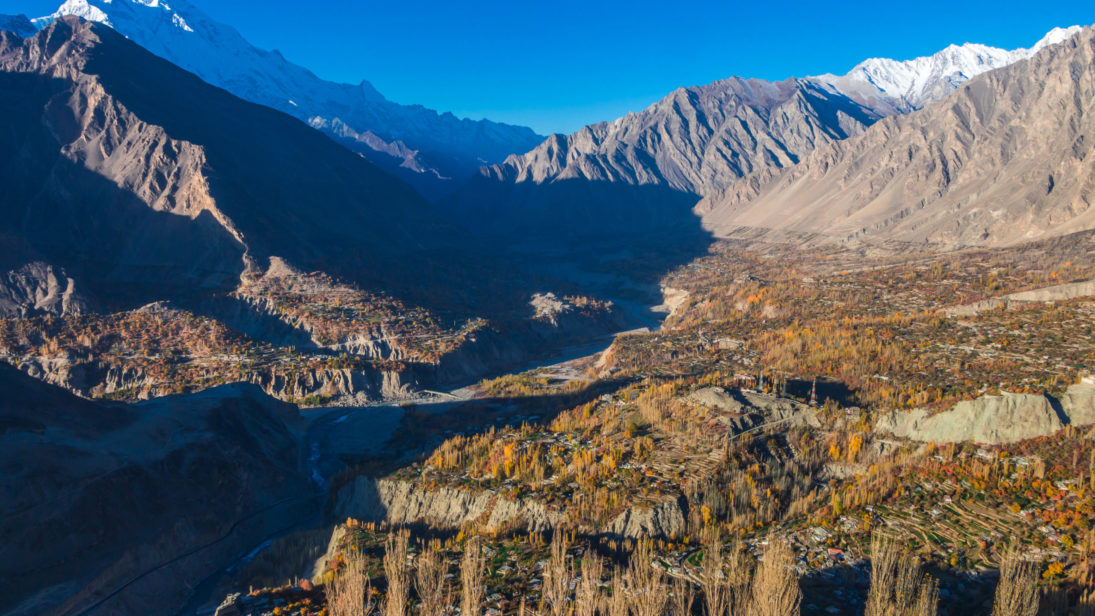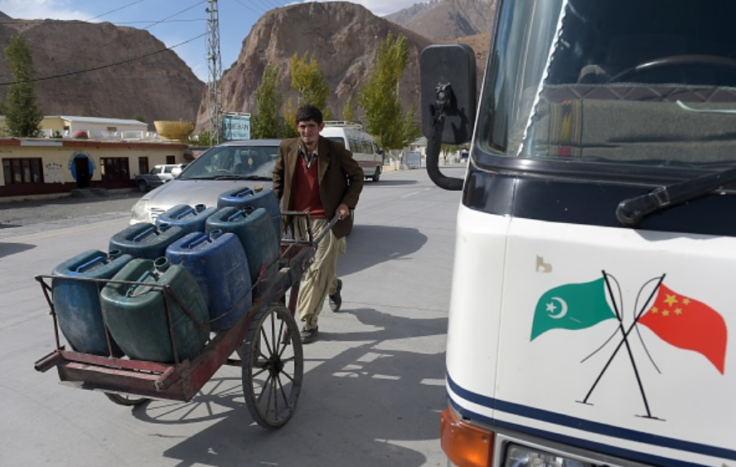
Since Gilgit-Baltistan acceded to Pakistan in 1948, it has demanded provincial status. However, due to its colonial association with the disputed region of Kashmir, an unfortunate remnant of British divide-and-rule strategy, its demands for provincial recognition and constitutional rights had fallen on deaf ears. Pakistan claimed that it awaited the UN-sanctioned plebiscite in Kashmir to determine the region’s status, the likelihood of which diminished considerably when the Indian government abrogated Article 370 and removed the semi-autonomous status of Indian-administered Kashmir in August 2019. Pakistan’s new political map, published this August, reemphasized Pakistan’s stance of considering Gilgit-Baltistan part and parcel of Kashmir that would be resolved only if a referendum is held.
Yet, in a sudden turn of events and in contradiction of the country’s long-held stance and new political map, the Minister of Kashmir and Gilgit-Baltistan Affairs Ali Amin Gandapur announced on September 16 that the government of Pakistan has indicated its plans to grant Gilgit-Baltistan official provincial status and representation in the Senate and National Assembly. Gandapur further stated that work on the Moqpondass Special Economic Zone would begin in Gilgit-Baltistan under the China-Pakistan Economic Corridor (CPEC). Gilgit-Baltistan, and its complex status within the larger Kashmir crisis, has long been a source of contention between India and Pakistan. India has opposed CPEC projects in Gilgit-Baltistan, arguing that the territory remains disputed, and the announcement was met with severe resistance and opposition in New Delhi.
Considering China’s push to grant Gilgit-Baltistan provincial status and its substantial investments in the region, it is impossible to ignore China’s role in Pakistan’s decision to finally grant the region constitutional rights.
Although the people of Gilgit-Baltistan have been pushing the Pakistani government for recognition and constitutional rights for 73 years, it comes as no surprise that Pakistan decided to fulfill this lasting demand now. The timing of the announcement suggests that it was not calls for recognition that led to this decision but Pakistan’s opportunity to further weaken India which is currently embroiled in a border standoff with China. Beyond the tug-of-war dynamics between India and Pakistan to determine the “rightful ownership” of Gilgit-Baltistan, it is important to understand China’s growing role in the region. Located on the border of China’s Xinjiang province, Gilgit-Baltistan is critical for creating a land route between China’s west and CPEC projects in Pakistan including Gwadar Port. Considering China’s push to grant Gilgit-Baltistan provincial status and its substantial investments in the region, it is impossible to ignore China’s role in Pakistan’s decision to finally grant the region constitutional rights.
China-Pakistan Economic Corridor and Gilgit-Baltistan
Gilgit-Baltistan, the “lifeline of CPEC,” has been left at the periphery, and the mercy, of the evergreen China-Pakistan friendship. When first agreed upon, CPEC promised unparalleled job opportunities, industrial growth, and complete reconstruction of the neglected region. However, Gilgit-Baltistan, a semi-autonomous region, was not even included as a stakeholder in CPEC negotiations despite demands from locals, and an “atmosphere of secrecy and confusion” has surrounded CPEC projects since its inception. Gradually, locals realized that Islamabad’s promise of 1.8 million jobs to revitalize the region was a façade; instead, China had planned to send 400,000 construction workers to Gilgit-Baltistan at the expense of local labor. China has almost exclusively profited off of the people and resources of the region—the government of Pakistan canceled licenses of local miners to allow Chinese developers exclusive control over mining activities and reportedly displaced thousands of residents without plans for rehabilitation.
Pakistan has turned a blind eye to China’s exploitations in Gilgit-Baltistan and strategic support for the cause of Kashmir at large. While Pakistan has relied on ideological arguments to reemphasize its support for the cause of Muslim-majority Gilgit-Baltistan, this ideological fervor disappears when it comes to China’s notorious treatment of Uighur Muslims in its Xinjiang province. China’s securitization and secularization model of counterterrorism against Muslims in Xinjiang, to quell anti-government unrest, has spilled across its border into Gilgit-Baltistan so much so that Pakistan has silenced Uighur Muslims within its own borders. Despite reports that hundreds of women from Pakistan—including over fifty citizens of Gilgit-Baltistan—have been arrested and locked away in Xinjiang province, Pakistan refuses to recognize China’s atrocious treatment of its Muslim populations. Prime Minister Imran Khan dodged a question on this topic earlier this year, claiming he did not “know much about it” and that Pakistan is grateful to the Chinese government for its support.
Additionally, China’s repeated push for Pakistan’s stance on Kashmir is rooted in an increasing Chinese security presence in Pakistan-administered Kashmir and protecting its own interests in Ladakh and Gilgit-Baltistan. Numerous reports of PLA soldiers in Gilgit-Baltistan corroborates China’s ulterior motives in supporting Pakistan on Kashmir. Considering China’s long-held non-interference policy but recent showing of strong support for Pakistan on the issue of Kashmir, it is not unreasonable to conclude that China’s economic and security interests in Gilgit-Baltistan have shaped its stance on the region. For Pakistan, Gilgit-Baltistan seems relevant only when it comes to securing Chinese interests. China’s high stakes in the region suggest its involvement in the recent decision over Gilgit-Baltistan’s status.

Provincial Status: For Gilgit-Baltistan or China?
China’s investments in Gilgit-Baltistan and an all-weather partnership with Pakistan seem to have superseded the decades-long demands of the locals in Pakistan’s decision to grant provincial status to the region. China has been pushing Pakistan to grant Gilgit-Baltistan constitutional status since the inception of CPEC to avoid risking backlash over investment in a disputed region and to surpass roadblocks to buying land. Recent claims within the Modi government to Pakistan-administered Kashmir, CPEC’s resurgence, and the current Sino-Indian border standoff, may have each pushed Pakistan to support China by granting Gilgit-Baltistan provincial status.
Granting Gilgit-Baltistan official status now, even in theory, can also be seen to advantage China’s position in the Ladakh standoff with India. India’s Chief of Defense Staff General Bipin Rawat has warned of a two-front war if Pakistan engaged in misadventures along its northern border. Pakistan’s move in Gilgit-Baltistan is a textbook misadventure, however, India has merely called upon Pakistan to “vacate all areas under its legal occupation”—no timeline was given and no provocation was implied.
However, China and Pakistan’s capacity to project collective power through Gilgit-Baltistan could complicate the current stand-off as India will now need to consider a territorial dispute on two fronts—Ladakh and Gilgit—which might weaken India’s morale to respond on either front. Also, it could be that Pakistan is attempting to grant Beijing greater access to the region, as Gilgit and Ladakh are only separated by the Siachen Glacier. Stationing forces in Gilgit-Baltistan, which is not an uncommon practice historically, could widen China’s vantage point. China’s presence in a territory with provincial status may receive less scrutiny, thus China could station troops in the region in the event of a border standoff with India. Furthermore, even if China does not use the region as a military base, provincial status could cement China’s stronghold in the region with the expedition of CPEC projects previously halted because of Gilgit-Baltistan’s disputed status. Whether India engages in a conflict on two fronts or avoids confrontation, uninterrupted access to the region as a result of the declaration and added pressure on India could be a win-win for China. While some have argued Pakistan’s move is an internal constitutional matter, its timing is questionable and suggests otherwise. If this move is taken primarily in the interest to improve China’s regional power, then the government of Pakistan needs to seriously reconsider its priorities in Gilgit-Baltistan which has been at the mercy of China’s debilitating projects for far too long.
Additionally, there are talks of granting Gilgit-Baltistan only provisional provincial status which indicates that this may be a short-term political move instead of a permanent effort to address the grievances of the local population.
The Risks of Regional Unrest
China’s vested economic and strategic interests in the region appear to have dictated Pakistan’s decision making in Gilgit-Baltistan. Granting provincial status to appease China or improve its position on the Sino-Indian border can have long-term ramifications for a country already heavily influenced by Chinese presence. Pakistan’s decision to grant constitutional rights now instead of last year when India revoked the semi-autonomous status of Indian-administered Kashmir, or in the past 73 years since Pakistan’s inception, suggests that this is a strategic move to support China—and in turn weaken India. Additionally, there are talks of granting Gilgit-Baltistan only provisional provincial status which indicates that this may be a short-term political move instead of a permanent effort to address the grievances of the local population.
Granting Gilgit-Baltistan provincial status is likely to further fuel regional strife and could push India to consider, if not engage, in a two-front conflict with Pakistan and China. Despite China’s backing, Pakistan should be cognizant of India’s conventional superiority and refrain from scoring political points at this volatile point in the South Asia region’s history. Considering all three stakeholders are nuclear powers, Pakistan should proceed with caution. Additionally, and most importantly, China’s opportunistic projects in Gilgit-Baltistan need to be questioned and restructured to aid the development of the region as initially promised. It is high time this regional border crisis is humanized and centered around the needs of Gilgit-Baltistanis.
***
Image 1: Fassifarooq via Wikimedia Commons
Image 2: Aamir Quereshi/AFP via Getty Images


